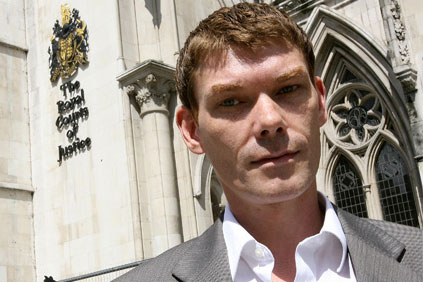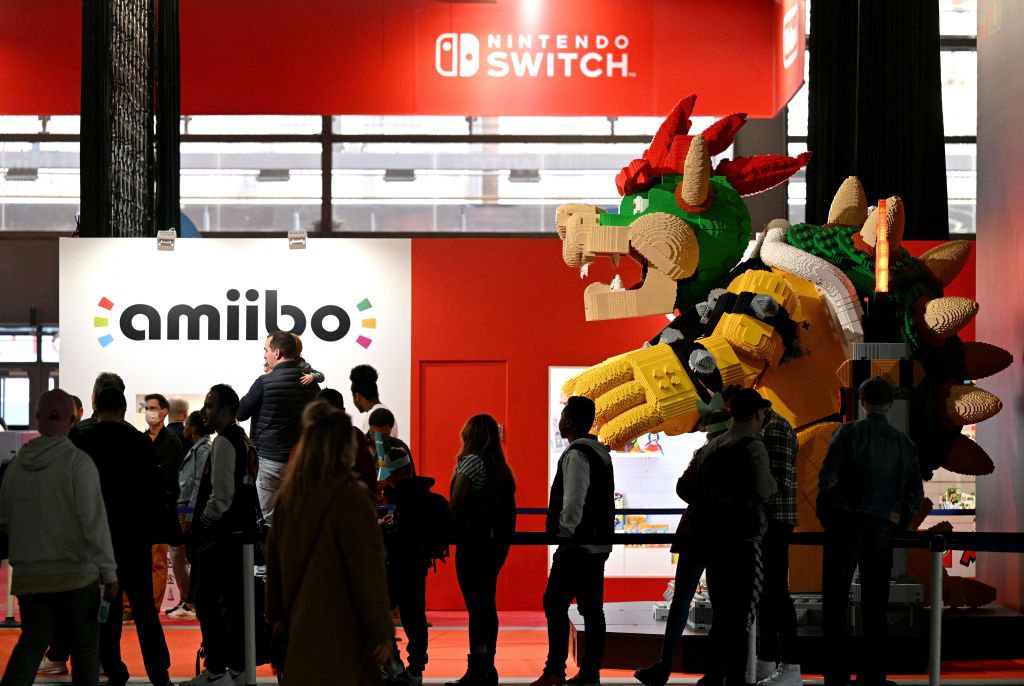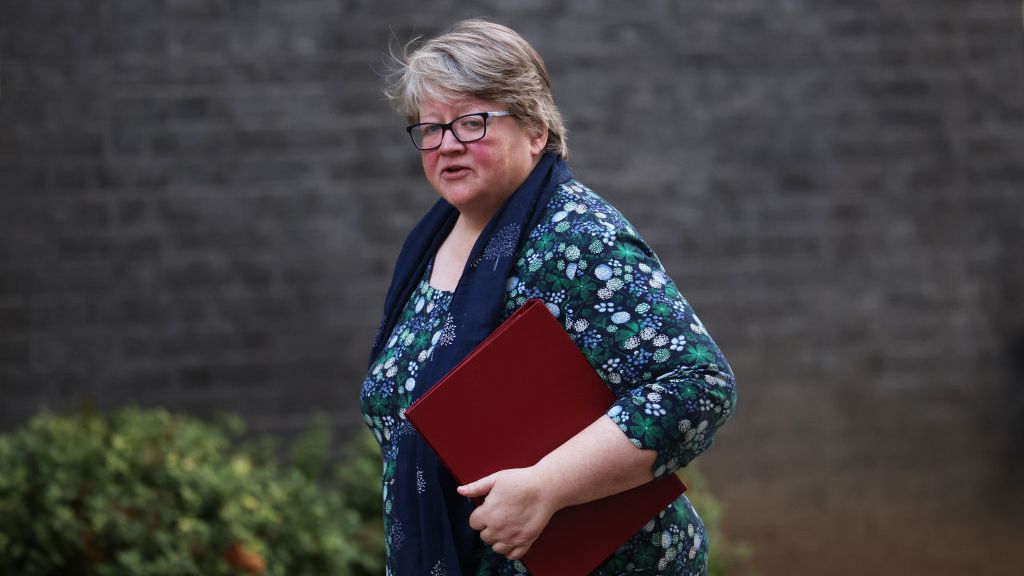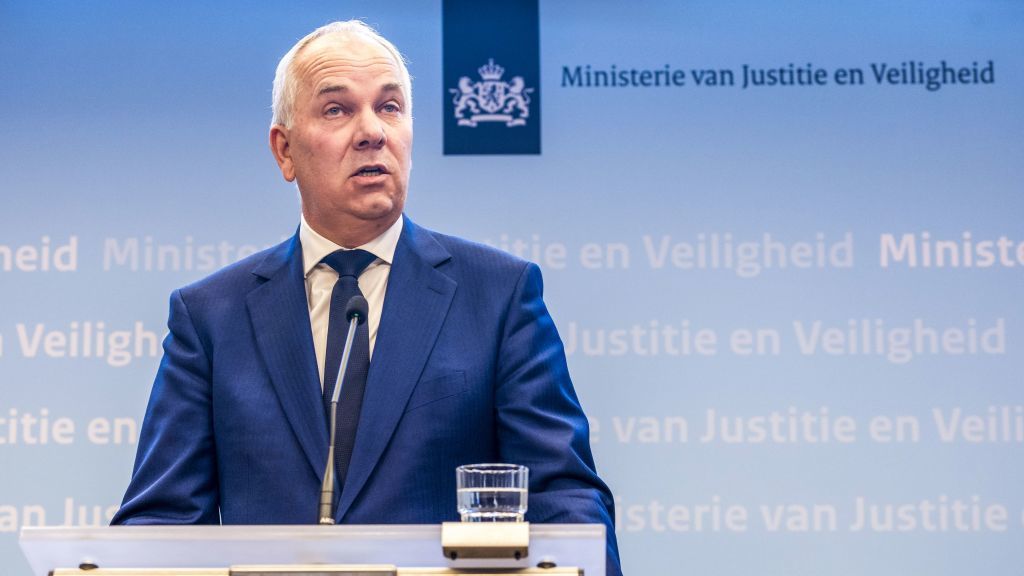No change as MPs debate McKinnon case
Home Secretary Alan Johnson hasn't shifted his opinion over Gary McKinnon's extradition.


A barrage of questions in parliament doesn't appear to have changed Home Secretary Alan Johnson's opinion on the extradition of admitted hacker Gary McKinnon.
Johnson refused last week to change his opinion on the case, saying a new medical report failed to show that the Asperger's sufferer's human rights would be breached if he were extradited to the US to face charges of hacking Pentagon and NASA computers.
McKinnon was given seven days for his lawyers to file a judicial review, and Johnson is currently considering a request for an extension. In the meantime, his MP David Burrows was allowed to raise an urgent question in parliament.
MPs argued that the extradition treaty was unbalanced, that McKinnon was a suicide threat, and that Johnson had more leeway to intervene. Others argued the hacker should be given a job or guaranteed support to return to the UK to serve his sentence.
The myriad of arguments failed to convince Johnson, however. He again stressed that the only way he could prevent McKinnon's extradition is if it was shown to breach his human rights - which he said hasn't happened.
Health concerns
One MP accused Johnson of showing "himself and his government to be spineless" by allowing the extradition of a "citizen who is suicidal and sectionable."
Get the ITPro daily newsletter
Sign up today and you will receive a free copy of our Future Focus 2025 report - the leading guidance on AI, cybersecurity and other IT challenges as per 700+ senior executives
MP Damien Greene noted how "horribly ironic that it is illegal to send someone to a country to face an explicit death sentence," when many believe McKinnon will commit suicide if sent to the US to stand trial.
MP Chris Hune said the Home Secretary was a "brave man" to risk having the suicide of McKinnon on his hands.
Noting he'd been called brave and spineless in a matter of minutes, Johnson said: "I accept the vulnerability of Gary McKinnon, as I accept the vulnerability of many cases going through for extradition... It's a very heavy burden on any Home Secretary's shoulders. But nevertheless, my job is to uphold the law."
Extradition treaty
Other MPs argued that the extradition treaty between the US and the UK was unbalanced.
"How many cases have we failed to get extradition from the US? None. Zilch. Nil. Every single case we have made to the US using probable cause has been approved," Johnson said, nothing about 30 such cases have occurred, without complaint from the US, while the UK has held up seven cases going the other way.
Johnson stressed that the treaty itself is not at issue, as McKinnon has already admitted the bulk of the charges, accusing those making the argument of "faint anti-Americanism".
He added that if an American in the same situation broke into UK systems, "members in this house would be outraged if the US refused to extradite the person responsible."
MP Damien Greene questioned whether that was entirely true, given the charges accuse McKinnon of trying to "intimidate or coerce" the US military, when he himself says he was looking for evidence of aliens.
Indeed, following the debate, McKinnon's mother Janis Sharp posted on Twitter that her son admitted the hack, but not the extent of the damage caused.
MP Andrew Miller noted: "Had he not masterfully broken through their systems, their security systems would have been vulnerable today... I wouldn't want someone testing my burglar alarm, but in this case he's done a huge favour to the American state."
Sharp added: "US should drop this extradition now, as it's making them and [the] UK government look like very vindictive people."
No change
Johnson said McKinnon must face the charges. "This is not a matter of me finding Gary McKinnon innocent of guilty. These are very serious charges against Gary McKinnon," he said.
Johnson said he has read every word McKinnon and his representatives have filed, and after "careful contemplation", could come to no other decision. "We've now had three Home Secretaries, incidentally, making the same decision. I think any person would have come to the same decision, no matter how hard that decision would be."
"It's not a Home Secretary's job to be popular, to please whatever media campaign is on the go," he later added.
Freelance journalist Nicole Kobie first started writing for ITPro in 2007, with bylines in New Scientist, Wired, PC Pro and many more.
Nicole the author of a book about the history of technology, The Long History of the Future.
-
 Google faces 'first of its kind' class action for search ads overcharging in UK
Google faces 'first of its kind' class action for search ads overcharging in UKNews Google faces a "first of its kind" £5 billion lawsuit in the UK over accusations it has a monopoly in digital advertising that allows it to overcharge customers.
By Nicole Kobie
-
 Neural interfaces promise to make all tech accessible – it’s not that simple
Neural interfaces promise to make all tech accessible – it’s not that simpleColumn Better consideration of ethics and practical implementation are needed if disabled people are to benefit from neural interfaces
By John Loeppky
-
 The UK cybersecurity sector is worth over £13 billion, but experts say there’s huge untapped potential if it can overcome these hurdles
The UK cybersecurity sector is worth over £13 billion, but experts say there’s huge untapped potential if it can overcome these hurdlesAnalysis A new report released by the DSIT revealed the UK’s cybersecurity sector generated £13.2 billion over the last year
By Solomon Klappholz
-
 "Thinly spread": Questions raised over UK government’s latest cyber funding scheme
"Thinly spread": Questions raised over UK government’s latest cyber funding schemeThe funding will go towards bolstering cyber skills, though some industry experts have questioned the size of the price tag
By George Fitzmaurice
-
 Threat of cyber attacks to national security compared to that of chemical weapons
Threat of cyber attacks to national security compared to that of chemical weaponsNews The UK government has raised the threat level posed by cyber attacks, deeming it greater on average than an event such as the Salisbury poisoning
By Rory Bathgate
-
 Nintendo hacker forced to pay company 25-30% of earnings for life
Nintendo hacker forced to pay company 25-30% of earnings for lifeNews Gary Bowser pled guilty to hacking charges in 2021
By Rory Bathgate
-
 2022 Public Sector Identity Index Report
2022 Public Sector Identity Index ReportWhitepaper UK Report
By ITPro
-
 UK and Japan strike digital partnership to collaborate on IoT security, semiconductors
UK and Japan strike digital partnership to collaborate on IoT security, semiconductorsNews The two countries are also set to align their approaches to digital regulation to make it easier for companies to operate in each nation
By Zach Marzouk
-
 Defra's legacy software problem 'threatens' UK gov cyber security until 2030
Defra's legacy software problem 'threatens' UK gov cyber security until 2030News The department spends over two-thirds of its digital budget on maintaining the risky applications, with no plan in place for a fix within the decade
By Rory Bathgate
-
 Netherlands urges citizens to prepare survival kits in case hackers target critical infrastructure
Netherlands urges citizens to prepare survival kits in case hackers target critical infrastructureNews The latest campaign from the national coordinator for security echoes the growing concern in the UK government over serious cyber attacks
By Zach Marzouk